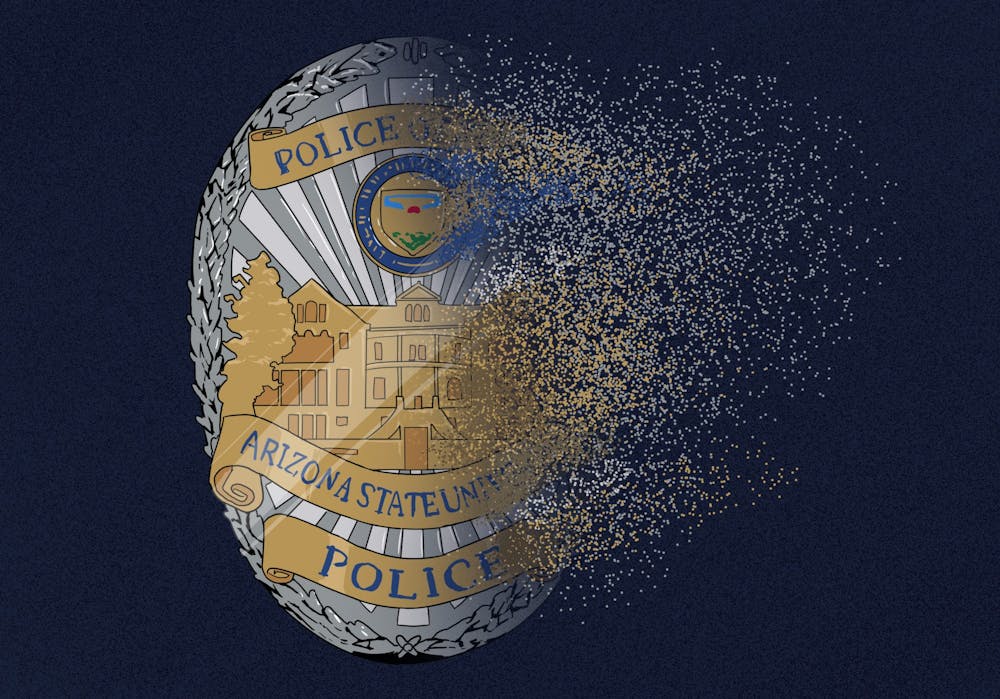After the police killings of George Floyd and Rayshard Brooks, two unarmed Black men, calls to defund and to abolish police departments entered mainstream discussions around the United States's inherently racist legal system.
This shift in demands was a welcome surprise for me. I'm just old enough to remember the first large round of Black Lives Matter protests sparked by the murders of Trayvon Martin, Michael Brown and Eric Garner.
Back then, activists demanded police reform — introduction of body-worn cameras, de-escalation training, and calls to charge and convict offending officers were the most prominent slogans of the day.
But, from the deaths of Martin, Brown and Garner to the deaths of Floyd and Brooks, many of those reforms were implemented. Far from reducing police terror, these measures legitimized and even strengthened America's violent cops.
Body-worn cameras now constitute an integral component of mass surveillance, and the officer who killed Brooks, Garrett Rolfe, had recently been trained in de-escalation tactics and cultural awareness.
When 14-year-old Antonio Arce, a Latino boy, was killed by Tempe police officer Joseph Jaen, many activists and I went to the city council itself. There was lots of dialogue, and many moments of silence, and still there was no justice.
As long as there have been racist police and prisons in the U.S., there have been calls to reform the police and to reform prisons. The modern police force is itself a reform from the Southern patrols that captured escaped slaves and the company gangs in the northern states which broke up strikes.
With all of this information in mind, and in light of the persistence of racist policing, it's safe to say that the police cannot be reformed. So, the ASU community should take this opportunity to support the abolition of the Arizona State University Police Department.
ASU PD is, in its own words, "just like any other police department." And that much is true — it is overfunded, a menace to the community, and what legitimate services it does render could be transferred to more appropriate providers.
Police departments do not do what you think they do. Through favorable portrayals in media like "COPS" and "Live PD," the public has been led to believe that law enforcement is a thin blue line standing between violent chaos and order. However, nine out of 10 calls for service are for nonviolent encounters.
Think the police do good work on the 10% chance that they are confronted with an act of violence? Think again. Even according to the biased FBI Uniform Crime Report, 38% of murders, 70% of robberies, and 47% of aggravated assaults are not resolved. I say "resolved" and not "solved" because as many as 10% of convictions in the U.S. are miscarriages of justice.
Despite an obvious historical record of racism, and despite a clear ineptitude in solving crimes, police funding has increased from $42 billion in 1977 to $115 billion in 2017 — a steady 4% of the state and local budget, despite a sharp and sustained decrease in crime since the 1990s.
Aniyah Braveboy, a senior studying Public Service and Public Policy and president of the Black African Coalition, said that both substantial cuts and a very different approach to training are needed in ASU PD to ensure the safety of Black students.
"I don't believe they need weapons, such as rifles," Braveboy said. "And, the major thing that we want ASUPD to change is their trainings on minorities."
Braveboy says that ASUPD's aggressive presence on campus harms Black students' experience at ASU, and is in line with a long history of racist policing.
In 2014, Ersula Ore, a Black associate professor at ASU, was arrested for jaywalking by the ASU PD. After resigning amid public outcry, the arresting officer was hired as a deputy by the Pima County Sheriff's Office.
Additionally, ASU PD openly collaborates with federal police agencies, including ICE and the FBI.
"Them standing on campus, or having their police cars on campus, I do not think is necessary," Braveboy said.
"I don't believe they're looking at it from the eyes of minorities. A Black student walking to class, and seeing a police officer standing in front of his police car, while you're on a predominately white campus and an environment you're possibly not used to can be very intimidating."
After the popular outrage against police racism, Braveboy is skeptical of new overtures from ASU PD towards minority communities on campus.
"Now they are trying to have those conversations (with minority groups on campus)," Braveboy said, "I don't want to say it's 'too little, too late,' but it's questionable as to why it had to take a series of killings."
Cornelius Foxworth, a senior studying psychology and Vice President of the BAC, wants action against racism to move away from the currently prevailing colorblind ideology.
"One of the biggest things about all of this is being able to see students for who they are, and their struggles, not just the colorblind approach of 'I don't see race,'" Foxworth said.
Foxworth thinks that the abolition of the American police system in favor of a new vision of public safety is possible.
"If you look at other developed countries, you can see that the police are not the way they are here in America," Foxworth said. "Very few of them have guns."
In response to potential worries over public safety, Foxworth thinks that community-based solutions are preferable to the police.
"The majority of society isn't just out to cause trouble," Foxworth said. "If we can police ourselves in a way that is appropriate for each community, I think we can do it. I think it's the change that scares people."
Police abolition is not only applicable to ASU, it is a necessity as part of the larger movement for justice and liberation for Black Americans and other oppressed communities in the United States. To ensure that racist police terror is put to a final end, we must do away with ASU PD and all police forces.
Reach the columnist at smisceni@asu.edu or follow @IMiscenich on Twitter.
Editor’s note: The opinions presented in this column are the author’s and do not imply any endorsement from The State Press or its editors.
Want to join the conversation? Send an email to opiniondesk.statepress@gmail.com. Keep letters under 500 words and be sure to include your university affiliation. Anonymity will not be granted.
Like The State Press on Facebook and follow @statepress on Twitter.




